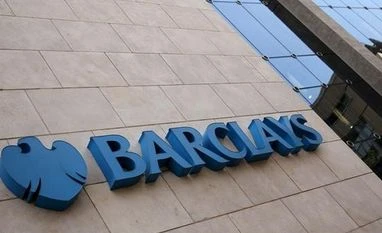Barclays has described as "fundamentally misconceived" a $1 billion-plus lawsuit brought by British financier Amanda Staveley over the bank's emergency fundraising from Gulf investors at the height of the credit crisis in 2008.
Staveley's private equity group PCP Capital Partners is claiming damages for alleged fraudulent misrepresentation in a civil case lodged at London's High Court in January that sheds light on how Abu Dhabi and Qatari sheikhs helped bail Barclays out nearly eight years ago.
The case hinges on the terms Qatari and Abu Dhabi investors received for participating in a cash call to help Barclays raise around 7 billion pounds ($10 billion) and avoid state aid.
Laying out a 44-page defence in a court document seen by Reuters on Thursday, Barclays denied dishonesty and recklessness and called PCP's assertion it had been a potential investor in the Abu Dhabi syndicate at the time "utterly speculative and flawed".
The case is unfolding months before the Serious Fraud Office (SFO) is due to decide whether to charge Barclays and former executives in a separate criminal inquiry into financial arrangements with Qatar that included a loan to the Gulf state, as the bank battled to raise cash during the financial crisis.
Barclays, which has not commented on the criminal investigation, made a High Court application in an attempt to delay filing a defence against the civil lawsuit until the SFO concludes its near four-year inquiry this year.
But during a London High Court hearing on May 19, the bank agreed to lay out its response by June 16.
More From This Section
Separate Services
PCP, which put together a syndicate of Abu Dhabi investors for Barclays in October 2008, alleges in the lawsuit that it received an "express and implied agreement", made orally and in writing by Barclays staff, that it would get the same terms as Qatari investors.
The lawsuit alleges Qatari investors received extra fees of 346 million pounds ($490 million), which includes an alleged 280 million pound "sham advisory services agreement" with Qatar.
Had PCP received the same deal terms as Qatar, it would not have had to give up a 10% interest in the funding deal to keep Abu Dhabi investors on board when Barclays shares fell in November 2008, the lawsuit alleged.
Barclays denied that PCP had been told it would get the same deal as Qatari investors and alleged the 280 million pound fee paid to Qatar was for "separate services which required separate payment".
Another 66 million pound fee paid by Barclays to Qatari investors at the time was for its role in arranging that Abu Dhabi's Sheikh Mansour bin Zayed al-Nahyan would invest in Barclays, it alleged.
Reuters was not able to reach Sheikh Mansour for comment.
"Barclays intended and expected that in return for the ASA (advisory services agreement) fee it would receive valuable services," it stated in the court document.
"In so far as Barclays made any representations, Barclays denies that it made those representations dishonestly or recklessly."
Qatar's sovereign wealth fund, the Qatar Investment Authority, has declined to comment on the case.
Staveley's PCP, which has four weeks to file a rebuttal, declined to comment.
($1 = 0.7038 pound)
)